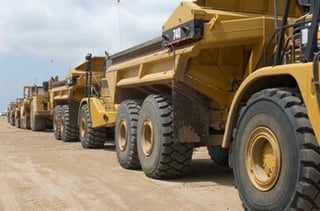There are so many terms in the equipment appraisals process that you would need a dictionary to understand them all. As long as you know the key terms that could affect your machinery valuation, you can interpret the results of an equipment appraisal and buy or sell used equipment for a fair price. When it comes to buying and selling used equipment, one key term to understand is effective age.
Understanding Effective Age
Appearances can be deceiving. If you were buying a die-cut machine at auction, for example, you would want to know whether the machine was 2 years old or 20 years old. The age would affect the price you were willing to pay for the machinery. You might be prepared to purchase a die-cut sealer that was either 2 or 20 years old, but for a very different price tag. Likewise, if you were selling the machine you would have a different expectation of acceptable prices based on age.
What if the die-cut sealer was actually 20 years old, but looked so good you would have sworn it was last year's model? This is where understanding effective age in the appraisal process comes into play.
Every piece of equipment has a real age representing the time from the date of manufacture to the present. Effective age denotes the look and feel of the machine... in other words, how old it appears to be to observers.
Whether you are buying or selling, effective age is important to know. It tells you something about the equipment values set at auction.
Effective age is subjective. Depending on how the machinery was cared for, the effective age can be less than or greater than the actual age.
A machine that looks new but is years old could have been recently repaired and painted to appear close-to-new. When examining old equipment, consider whether the piece was cosmetically enhanced to look good or truly rehabilitated to be competitive with current models.
Consider the example of a home for sale in your neighborhood that's 30 years old. Let's say the current owner remodeled the bathrooms with low-flow toilets and an energy-efficient shower, put in a new tile floor, and refreshed the paint. The updated bathroom looks brand new even though the home is 30 years old. Now, imagine the same home is on the market, but the bathroom has only been repainted and the sink faucet was replaced. The bathroom looks somewhat newer than the rest of the house, but isn't actually more efficient. The work was simply window dressing to trick the buyer into paying a good price.
The same holds true for machinery valuation of used equipment. Rather than trust what you see, it's important to dig deeper and ask questions to find out if the equipment meets your needs and if the price is fair.
An equipment appraiser can help you evaluate equipment you are considering buying from a third party or walk you through the equipment values and effective age of an item before you take it to auction. This can save you time and money if you're selling equipment. Why spend money to fix an item if its effective age will still look poor compared with similar pieces of equipment?
Whether you seek equipment appraisals before buying or selling, it's key to find an appraiser who understands the industry, equipment, and core considerations.


